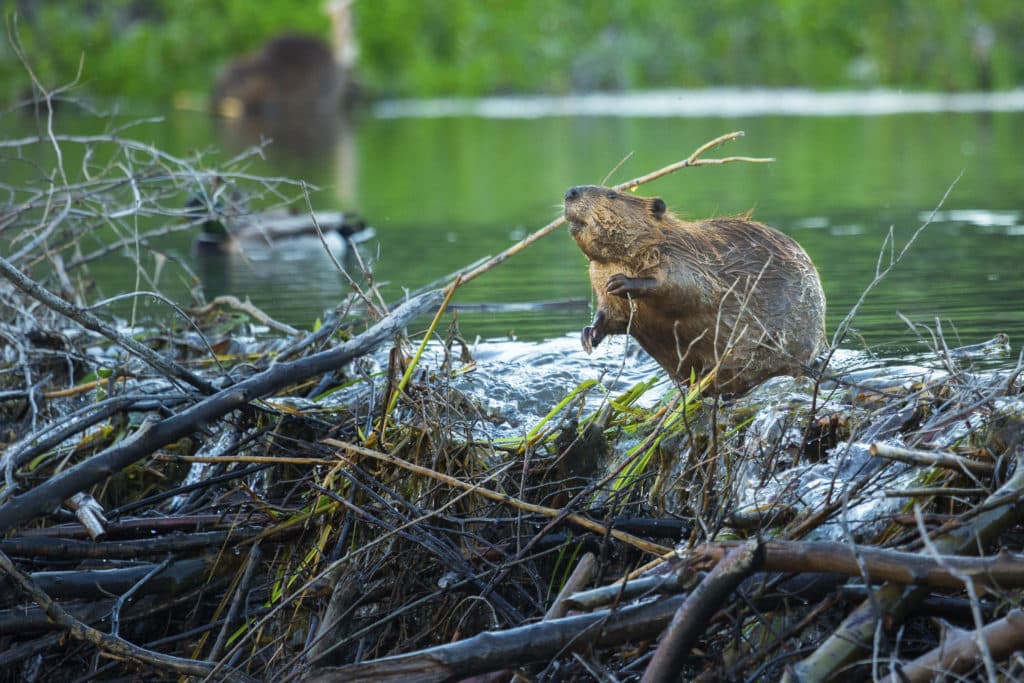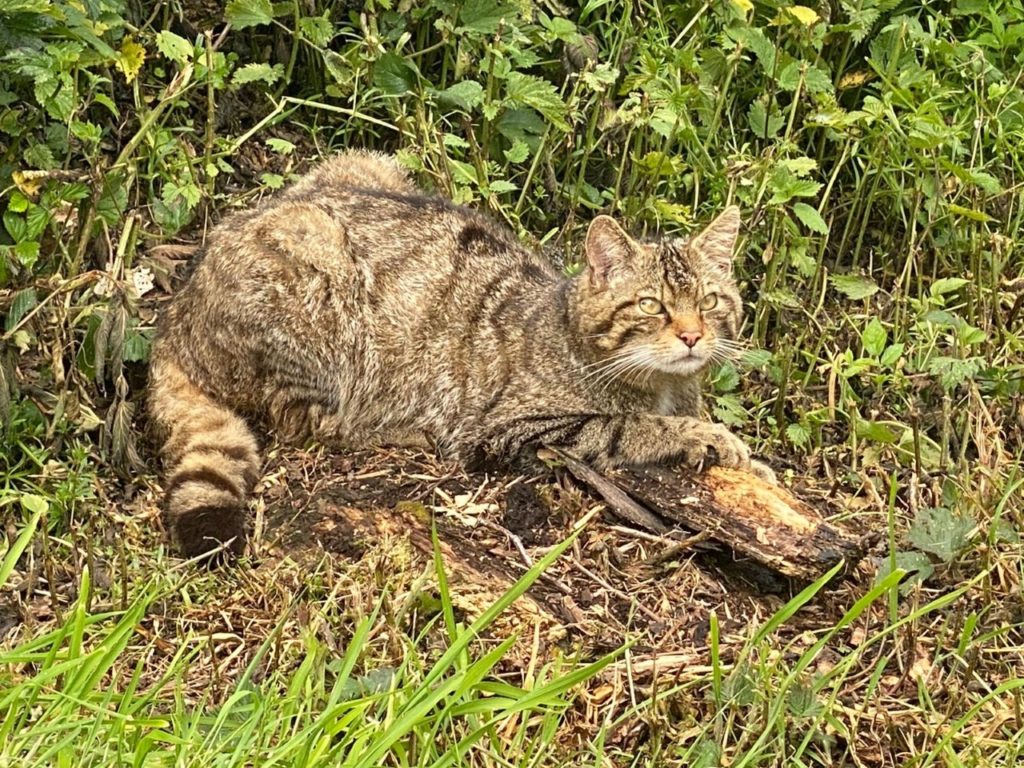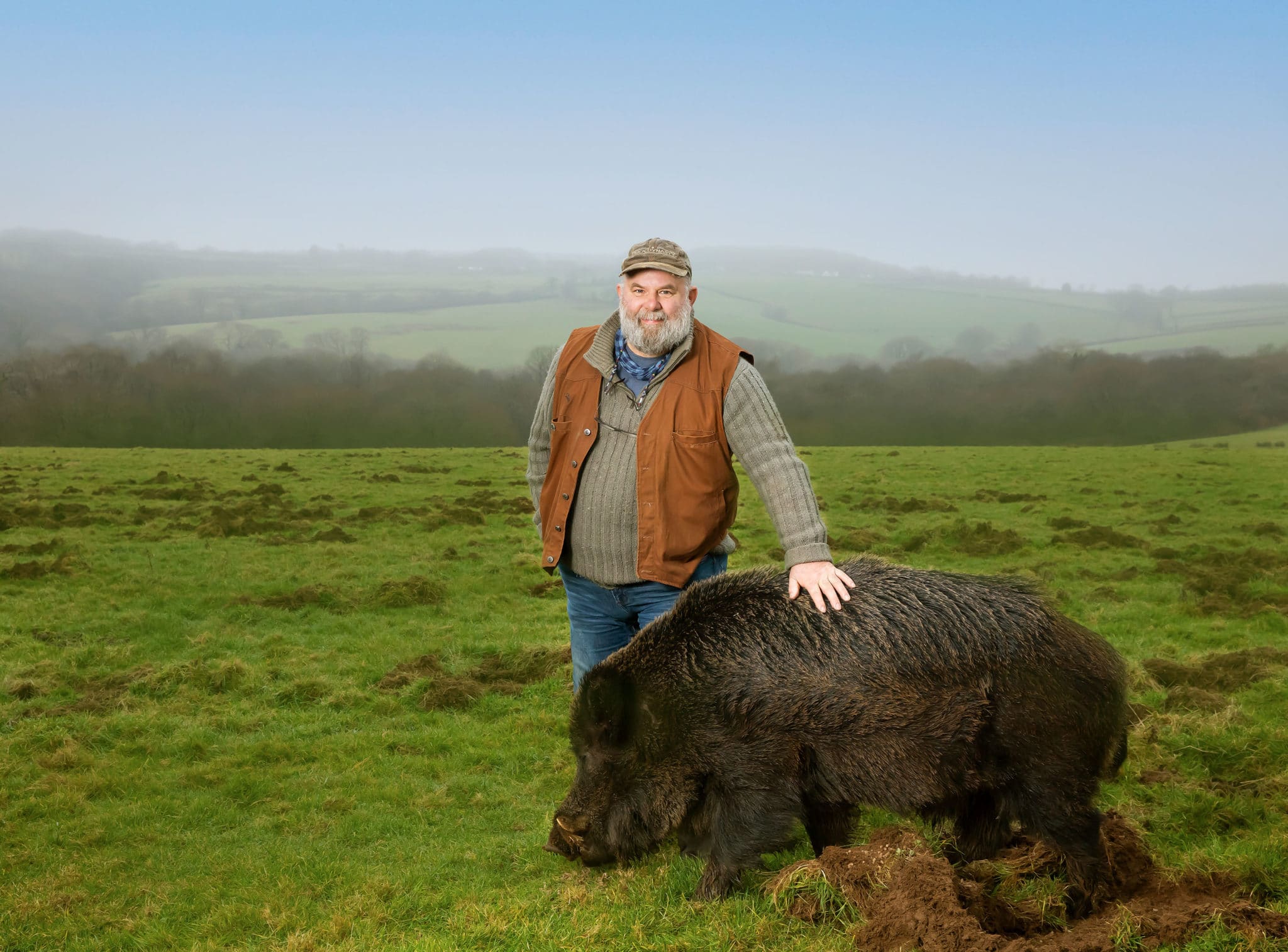When it comes to nature documentaries, the obvious choice for backing music would be classical, epic music. But if renegade rewilder Derek Gow had a show, the soundtrack would have to be punk.
Fed up with the “inertia” he says is typical of many nature organisations, he’s part of a new movement that is ripping up the rulebook of traditional conservation.
“I can’t be fucking bothered talking,” says Gow, in his soft Dundee accent. “What I’m interested in is how do we practically make a difference. As far as I’m concerned, the other stuff is just flannel and faff.”
The eloquent but frank Gow has been reviving water vole populations, reintroducing wildcats and storks, and even has lynx in captivity on his farm in Devon.
But it’s the return of the beaver to English rivers after 400 years that he thinks has most potential to radically transform our landscape. And while there are still wild beavers in Scotland, in England it all began when three mischievous beavers appeared on the river Otter, having ‘escaped’ from someone’s enclosure.
Beavers, humans and elephants are the only species worldwide that have significant ability to influence landscapes.
Gow says it’s just as well people took it into their own hands: “If you looked at all the ‘science-y’ projects where you apply for a licence, it takes you ten years and eventually you’re allowed to release ten in Scotland. That would have been it,” he says, pointing out there are now well over 400 beavers in the UK.
Despite growing evidence that beavers benefit landscapes, it is still technically illegal to release them without a licence so those working in less official conservation are still careful with their language.
But in Gow’s mind, their reintroduction is a no-brainer: “Beavers, us and elephants are the only species worldwide that have significant ability to influence landscapes.”
Speaking from a wooden cabin on his farm in Devon, he describes how beavers learnt to escape land-based predators by staying in rivers and expanded their safe territories by building dams in smaller outlets, pushing mud and gathering plants with their front paws. “They’re engineers, that’s for sure,” he smiles.

And this engineering has a cascading effect on the local environment.
“What they do is create landscapes that are resilient to both flood and drought,” says Gow.
Talking when the grass turned brown and burnt during summer after one of the worst droughts in 40 years, this feels particularly timely.
“A beaver landscape in drought is full of water and the plants that grow around it are all green. As soon as you move away from it, then the land is brown. It’s not a complicated thing,” says Gow.
As an ex-farmer, he also feels he is well placed to give an “honest appraisal” of trade-offs between food production and nature. It’s a debate that sparks a visceral reaction from some farmers, as documented in the popular book Wilding by Isabella Tree, who disapprove of using land to restore nature rather than producing food.
The idea that we need to keep every inch of this landscape for farming is complete and utter nonsense.
“The arguments tend to be polarised with people saying it’s all about food, then you get people saying it’s all about wildlife and obviously none of that is true,” says Gow.
“But the idea that we need to keep every inch of this landscape for farming is complete and utter nonsense,” he adds.
“This is not a binary argument; this is not about a man with a sheepdog and plough with a horse called, I don’t know, Toby. It’s about looking at different ways of feeding ourselves that are novel and don’t take up as much of the land.”
Gow has no doubt that making space for creatures like beavers is not just a bucolic fantasy; there is a clear economic rationale for their return too.
“The cost of [droughts and floods] from an insurance and infrastructural point is vast,” says Gow, pointing out Defra has budgeted £5.2 billion to deal with flooding alone in the coming years. Research has even calculated that extreme drought costs the UK economy £1.3bn a day.
“It makes complete economic sense to have beaver-generated landscapes,” says Gow. But not everyone agrees. Farmers worry that beavers will flood their land with the expansion of their network of dams.
And while beavers offer little physical threat to livestock, others fear they could spread disease, while species like lynx and wildcats bring different concerns.
Gow has them both in enclosures on his farm in Devon, with a view to prompting a conversation with government about releasing larger predators. While he believes we could see wildcats reintroduced within the next few years, he is far from convinced that the lynx will ever be released into Britain.

“How do you negotiate the return of [the lynx] that will cross property boundaries with great ease, unless you’ve got a government strongly standing behind you?” says Gow, though personally he believes they’re likely to have a neutral effect on wildlife, aside from helping to control the ever-increasing deer herds.
Despite his ambition to see a wilder Britain, Gow is also keen to simplify the polarised rewilding debate. This comes as a new paper from TABLE, an academic platform for debates on the future of food, analyses the controversy around agriculture and rewilding, explaining how some call it ‘giving land back to nature’, while others say it’s a form of ‘eco-colonisation’ where corporations pay to offset emissions and nature declines through rewilding projects.
I’m not the least bit interested in what you call it, it’s just about making things better for other life.
The spectrum of rewilding approaches varies enormously from reintroducing wolves in Yellowstone National Park in the US, to letting unproductive patches of land go a little bit wilder.
“I’m not the least bit interested in what you call it, it’s just about making things better for other life,” says Gow.
“It’s about taking landscapes and saying, you’re going to have time to breathe. We’re just going to stop the abuse and we’re going to give you time to seed, grow and be what you can be,” he adds.
And this is what his new book, Beasts, Birds and Bedlam, is all about: painting a different picture of what nature could look like and reimagining our relationship with nature and each other.
“We need a new world order,” states Gow. “[One] that tolerates things. Every single time when anything takes something from us, my tree, my rock, my water, my grass, our solution is always to kill it.
“A different mindset is going, ‘we understand you. We understand you’re a beaver, we understand what you do’,” he adds.
We need a new world order, one that tolerates things.
And if there’s anything that might, as a species, help us re-evaluate our relationship with the natural world and each other, it’s the sort of wonderous moment you might experience when spotting one of Gow’s species back in the British landscape.
As he puts it: “People should be inspired: you need people to look at things and think that’s truly wonderful. Because if people don’t think that’s truly wonderful, then why on earth would you do it?”
Derek Gow’s top tips to make a difference to nature:
- Give to organisations that are doing what they say they do, such as the Roy Dennis Wildlife Foundation reintroducing white-tailed Eagles on the Isle of Wight, or Gow’s own new charity project Keep It Wild that will address things typically hard to find funding for, like feeding wildcats and putting up more enclosures for them, and turtledove reintroductions.
- Make your gardens wilder, don’t do all the tidying up you normally do and make sure your plants don’t have neonicotinoids in their soils, as many garden centres will sell.
- If you can, buy land, buy it with your neighbours. It will be the best decision you’ve ever made.
Birds, Beasts and Bedlam: Turning My Farm Into an Ark for Lost Animals by Derek Gow (£20, Chelsea Green Publishing) is out now.









At last – a sensible person not beating around the (non existent!) bush!
We are spending our retirement dosh on a couple of acres of valley bottom – and we hope the beavers will arrive post haste!!
It is time we connected and used our energies in the REAL world – not the human-made, humancentric, made-up-economics bullshit that surrounds us – if you try really, really hard – you can zone it out!
We do have to put our money where our mouth is – into good well-raised foods – that honour and aid nature – and perhaps stop spending endlessly on crap!
Wow that is exciting Hecate! What are you planning to do with the land? Such an empowering and tangible act! Maybe a chance to get some Wicked Leeks heads involved with the projects
The main thing is to let it re-wild…. having said that – we are considering how much to intervene – like adding trees, taking away any non-native plants and whether to impose a pond….. We will also cut a path through so we and others can see it – the most important thing for nature – is to be allowed uninterrupted habitat – but also the humans have to learn that we should leave it alone….. a bit of a paradox I guess!
Really interesting dilemna, I guess humans are apart of our landscape and can influence it in positive ways as well as negative ways, such as putting in ponds and putting in conditions for wildlife to thrive. But such is our disposition to meddle, such a mindset change. Let us know how you get on!
I’m tired of being constantly told in London that environment and climate are middle class issues (it only seems that way since there’s so little of them here in a decent state).
But I think I’d have to admit, buying land really is a middle class issue.
Anyway, if I had the money, I’d probably agree, and as someone witty once said:
“Buy land – they don’t make it anymore!”
A good point, but nothing to say you have to buy it all by yourself. Why not buy an acre of unproductive farmland between 20 of you? Maybe not in a 50 mile vicinity of London though.